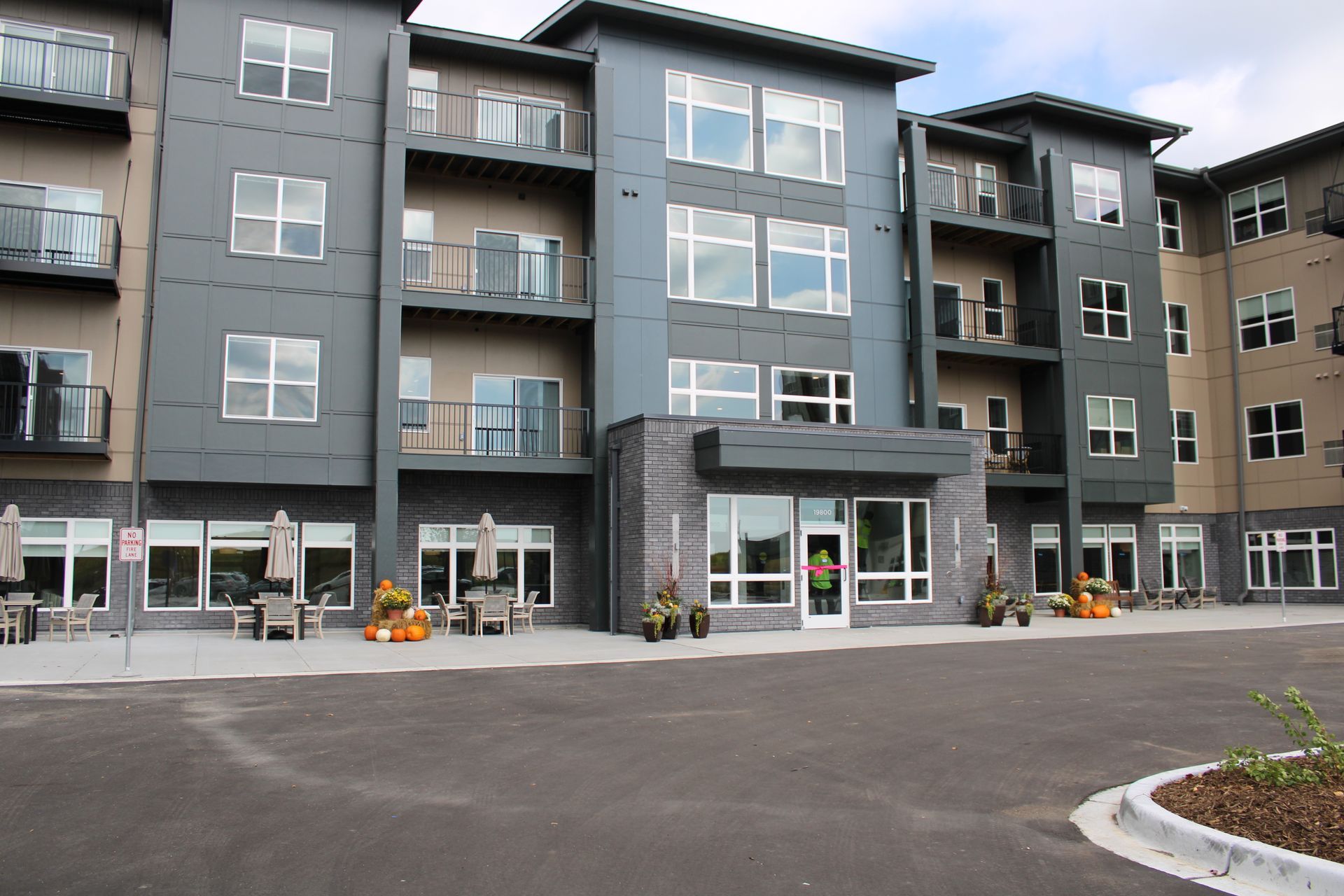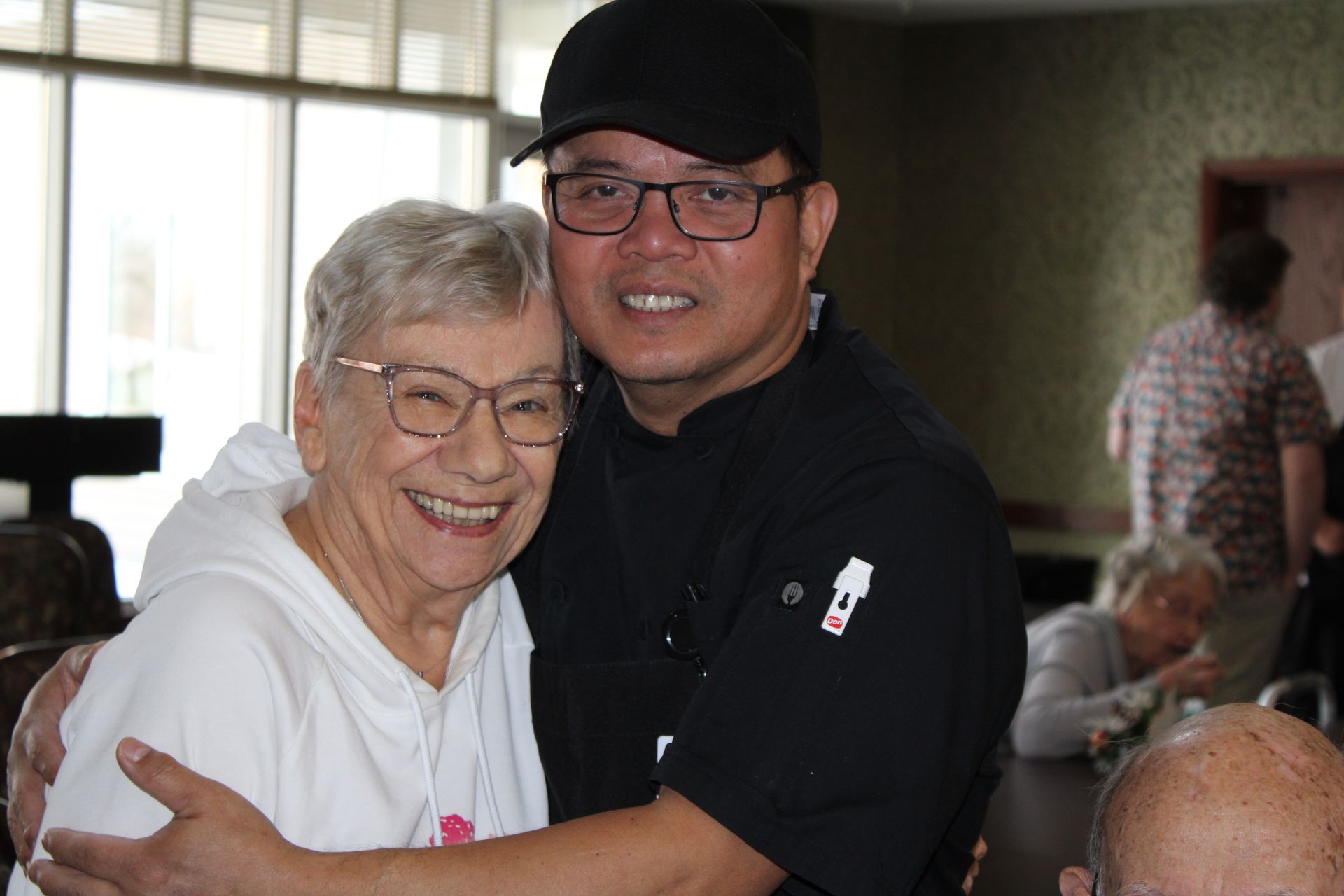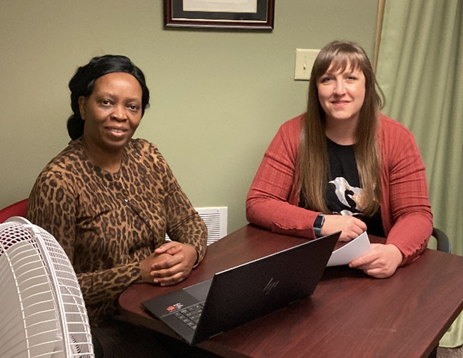
Mentors in Senior Care — Saint Therese Staff Guides the Next Generation
One of the great things about Saint Therese, and something to be proud of, is our efforts to train new healthcare professionals in the complexities of geriatric care. Our senior communities in Woodbury, Brooklyn Park (Oxbow Lake) and New Hope are currently hosting Rasmussen University nursing students for their clinical rotations. But, we also have a number of staff who spend considerable time to help mentor and shape current and future professionals.
One such person is Morganna Moon, RN, MSN, Director of EMR and Education for Saint Therese (EMR stands for electronic medical record), who has trained countless nurses. She recently mentored a student in Walden University’s doctorate program for nurse practitioners, where she focused on organizational and leadership development.
“I know how hard it is to find preceptors and how valuable they are,” said Morganna. “I’m very passionate about it, especially now when we can’t get people into nursing.” (A preceptor is an experienced licensed clinician who supervises nursing students during their clinical rotations. Their role is to help students translate theoretical learning to clinical practice.)
For her Walden student, Morganna spent 160 hours exposing him to other aspects of clinical leadership beyond bedside care. He shadowed her as she attended meetings, took part in calls, and learned the organizational hierarchy and how it functions, something he wouldn’t be exposed to when doing patient care.
When Saint Therese expanded its relationship withRasmussen, Lisa Kalla, chief operations officer and Jessica Gier, vice president of Clinical Operations & Reimbursement, immediately thought of Morganna as someone who could help mentor students who were highly motivated and autonomous.
She’s currently mentoring Susan Maranga who has worked at Saint Therese of New Hope for more than 20 years and is now finishing her baccalaureate degree with Rasmussen. Susan is spending 45 hours learning leadership skills under Morganna’s tutelage.
“We don’t have enough educators and people formally trained in education, so we are so thrilled that Morganna is more than willing to take on these students. As she often says, ‘if you don’t have educators, how do you get nurses through schools.’”
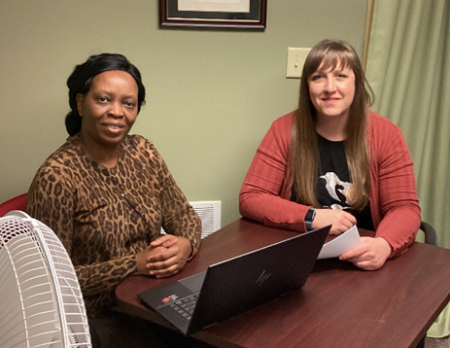
Similarly, Andrew Pfaff, RD, at Saint Therese of New Hope, is proud of and relishes his role as a preceptor for dietetic students at the University of Minnesota’s School of Public Health. While he was a preceptor before coming to Saint Therese, he began doing it here in 2021.
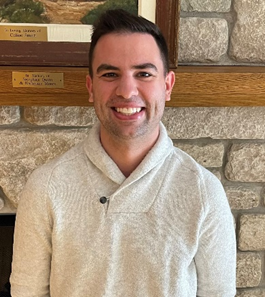
He said the students start off shadowing him and then move on to experience things such as meeting and educating residents; doing assessments; charting; interacting with patients; attending interdisciplinary team meetings and menu planning. They spend about 80 hours with Andrew, but he encourages them to have as much autonomy as possible.
“I love to be a part of someone’s journey to be a dietitian,” said Andrew. “I have this mentality that if they can learn one new thing a day, then we’re being successful. I love to share the knowledge.”
He said he’s also encouraged by the evolution of dietetics as it becomes more and more pertinent to patient care. “Caring for seniors has been very medicine-focused but now people are valuing food and nutrition.”
That’s a good sign, and a fitting one, as today, March 8, is Registered Dietitian Nutritionist Day.
About
At Saint Therese, our heartfelt purpose since 1968 has been a people first approach to living well by providing senior care and services where every life we touch feels welcomed, respected, and heard. We achieve this by doing ordinary things with extraordinary love every single day. Contact us to learn more.
